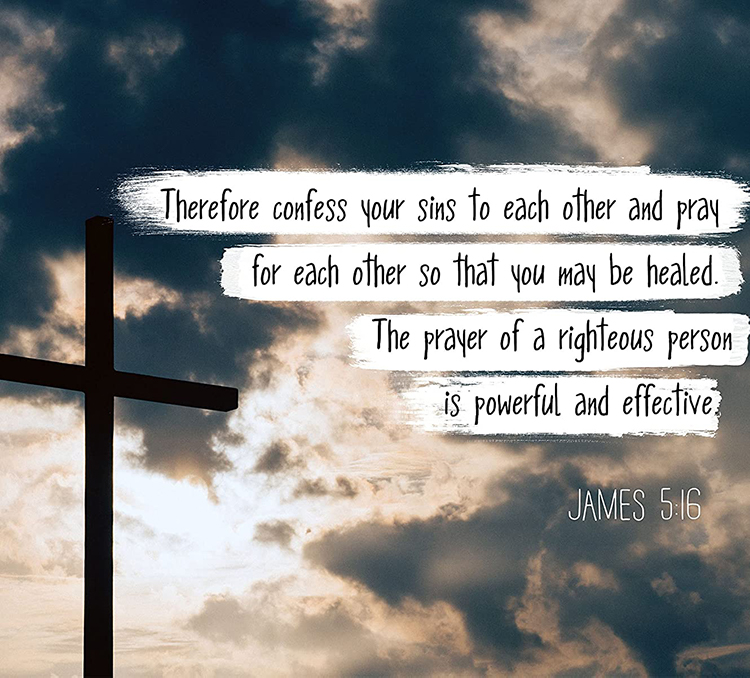By CHRIS FIELDS

The Bible admonishes us to confess our sins to one another. This is a Christian discipline we are all reluctant to practice, for the sake of perceived shame and potential judgment from fellow brothers and sisters, but the reason Christ urges us to practice this discipline is because it keeps the confessor humble — and Christ strengthens the weak, not the strong. It’s the meek who inherit the earth, and it’s Christ who makes them strong enough to do so.
I’ve been writing these wellness columns for the better part of a year now, from a place of strength. I’ve been writing as someone with expertise garnered through studies and experience as a health professional serving people with diseases in the metabolic cluster. I’ve never written from a place of humility or from a place that may be relatable to most. I’ve never written from a place of brokenness and weakness, never from a place of strength in Christ.
It’s common for someone whom others look to for advice to be perceived as being above reproach, but we need help just as much as anyone. The health industry (like any other) is filled with professionals who don’t follow their own advice. I know because at one point I was one of them, and in some cases I still am.
For the majority of my adulthood, I struggled with an eating disorder known as bulimia nervosa. This disorder is defined as an emotional one involving a distortion of body image and an obsessive desire to lose weight. What drove my obsession was me growing up a heavier child and always being classified as husky or overweight. At one point in my childhood, I developed high blood pressure and high cholesterol due to my poor dietary habits. I never ate fruits or veggies and hardly ate proteins that weren’t fried or full of bad fats and sodium.
My saving grace was that I was an active child involved in sports through the early part of my adulthood, and the better I got at sports, the more I would be involved, and the more I was involved, the more physical activity I engaged in, which helped me shed weight and caused my high blood pressure and high cholesterol to go into remission.
The problem with my newfound body image, though, was the fact that I began to warrant attention from women, and the more attention I got, the more I craved it. At this point, losing this new body image was not an option, so I did whatever it took to keep excess weight off. The problem was, I still had poor dietary habits, so I would eat my fill of the foods I enjoyed and vomit them back up so I wouldn’t suffer the consequences. This lasted most of my adulthood.
Jesus delivered me, and He did it instantly. To make a long story short, one day I was bulimic and the next day I wasn’t. He showed me my hypocritical thought processes, which led to my choices, which led to my struggle with bulimia nervosa. I was serving as a health educator and diabetes educator and helping those who suffered like I did, but without confessing my own sufferings. I was passionately admonishing Christians on the sinful choices they made with their bodies, and how they weren’t honoring God in those choices, when I wasn’t honoring Him in mine. I was extremely ashamed of my choices, even after my deliverance.
So one evening I was at the gym, and it was one of those evenings I really didn’t feel like going, but I got up and went anyway. There was a guy there whom I would see infrequently and speak to in passing, but this evening he decided to talk. During our talk, the Lord made me realize how I was ashamed of Him in my deliverance — not of what He’d delivered me from. He had granted me victory and I was ashamed to admit it. I was ashamed to give Him glory.
It’s probably the most shameful experience I’ve gone through, but in our most shameful experiences, Christ gets the most glory when we give them to Him and rest in His strength. You all are getting to experience my rest in Him. This is my first public confession of one of my many experiences of His deliverance.
*Editor’s note: Bulimia nervosa is different than anorexia nervosa, which is characterized by extreme thinness due to starvation and excessive exercise. People with bulimia nervosa can appear healthy looking but will go to extreme measures to maintain their physical appearance.

Chris Fields is the founder and executive director of H.E.A.L. Mississippi and a graduate in kinesiology with advance studies in nutrition. He serves as a clinical exercise physiologist/CPT and is credentialed in Exercise Is Medicine through American College of Sports Medicine.